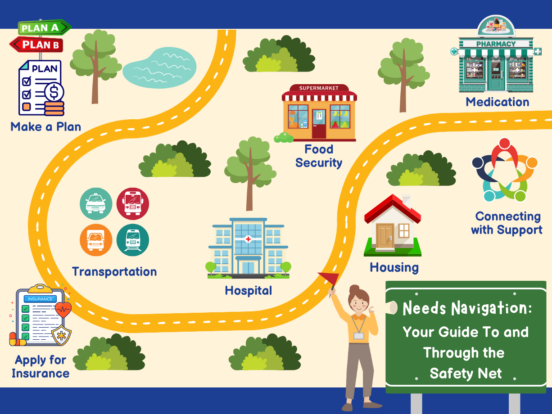Needs Navigation


Rachel Riley is a student at Furman University in Greenville, South Carolina. In this post, she shares her personal experiences with health insurance and why she feels strongly that we design a healthcare system that works for everyone.
Rachel Riley is double majoring in public health and politics and international affairs at Furman University and an aspiring health care lawyer. She is one of our policy and grassroots interns this summer.
Growing up, “insurance” was a daunting word. My childhood consisted of a constant cycle of bad insurance, no insurance, and back to bad insurance. And when we did have it, my family didn’t understand how it worked and feared expensive medical bills. Furthermore, it was difficult for my single mom to take off work to get us to appointments. The few times we did go, I was misdiagnosed (my guttate psoriasis started off as “folliculitis” and I was treated with antibiotic which made it worse). My mother would often feel disrespected and talked down to during these appointments, making her hesitant to take me again. Hospitals, doctor’s offices, and check-ups were relatively foreign up until college.
My university has an on-campus health center that is easy to access and relatively transparent on costs. It was reassuring to know I had care only a 10-minute walk away from my dorm if I ever were to need it. I ended up utilizing the service after a concussion during finals week and that weird cough nearly everyone gets freshman year of college. I became familiar with how the center looked, the staff became friendly faces, and I wasn’t scared to get my vitals taken. This is why my sophomore year, I felt comfortable enough to get a small preventive procedure done at the health center. I went to a consultation and discussed options and prices where they told me that it should be covered by the insurance I had at the time. To be certain, I insisted that they call again and confirm that my insurance indeed covered the procedure. They assured me they would not move on with the procedure unless it was covered. My insurance said the procedure would be completely covered and within the next week, I had a seamless procedure.
A month later, as I was leaving my 8 am class, I looked down on my phone to an email from the health system in my area that said I had a new bill available. I quickly opened the email and froze. The big green number $2,734 lit up my screen. It was for the procedure I was told would be $0. This couldn’t be right.
Luckily for me, at the time of this incident, I was enrolled in a Health Care Law and Public Policy course, and we had just finished learning about the Affordable Care Act (ACA), including the 10 essential health benefits. I was positive that my procedure fit within one of those tenets. I looked up my plan and closely read through pages and pages for about an hour before I saw the procedure, which was in fact supposed to be covered. Eleven months later, countless hours on the phone with my insurance, numerous pieces of paperwork, and after dodging a few calls from debt collectors, it was finally identified as a coding error and the bill was erased. It’s like it never happened.
It’s important to recognize, however, that it did happen and I was fortunate that I had the resources to deal with it. Without that class, I wouldn’t have even known where to begin. I wouldn’t have even realized something was actually wrong with the bill or understood the complex language on my insurance’s website. My mom probably would’ve broken down and paid the bill despite not being able to afford it to keep my record clean. It would’ve likely taken me years to build back enough trust to go back to a doctor if I ever needed to. This experience was extremely stressful and felt isolating. But as I’ve navigated the health world through my undergraduate studies, I’ve come to realize that my experience was not some anomaly. The average person probably would’ve struggled just as much. For the country that spends the most on health care in the entire world, this experience was unacceptable and embarrassing. I shouldn’t have had to attend a small liberal arts college to feel comfortable enough to see a doctor. I shouldn’t have had to be enrolled in a class valued at $4,000 taught by lawyers to understand how insurance works and what kind of care I should have access to. Instead, I should’ve been taught about Medicaid, premiums, deductibles, and EMTALA (Emergency Medical Treatment and Labor Act) in high school.
I now understand that I am not a burden on the health care system and that instead, it failed me. It’s essential that people are aware of the resources available to them and that we collectively work to make a health care system that works for everyone. I admire the work that NPAF does to construct a more equitable, affordable, and easy-to-access health care system and I’m proud that I am able to intern and learn to be an advocate with such a meaningful organization.